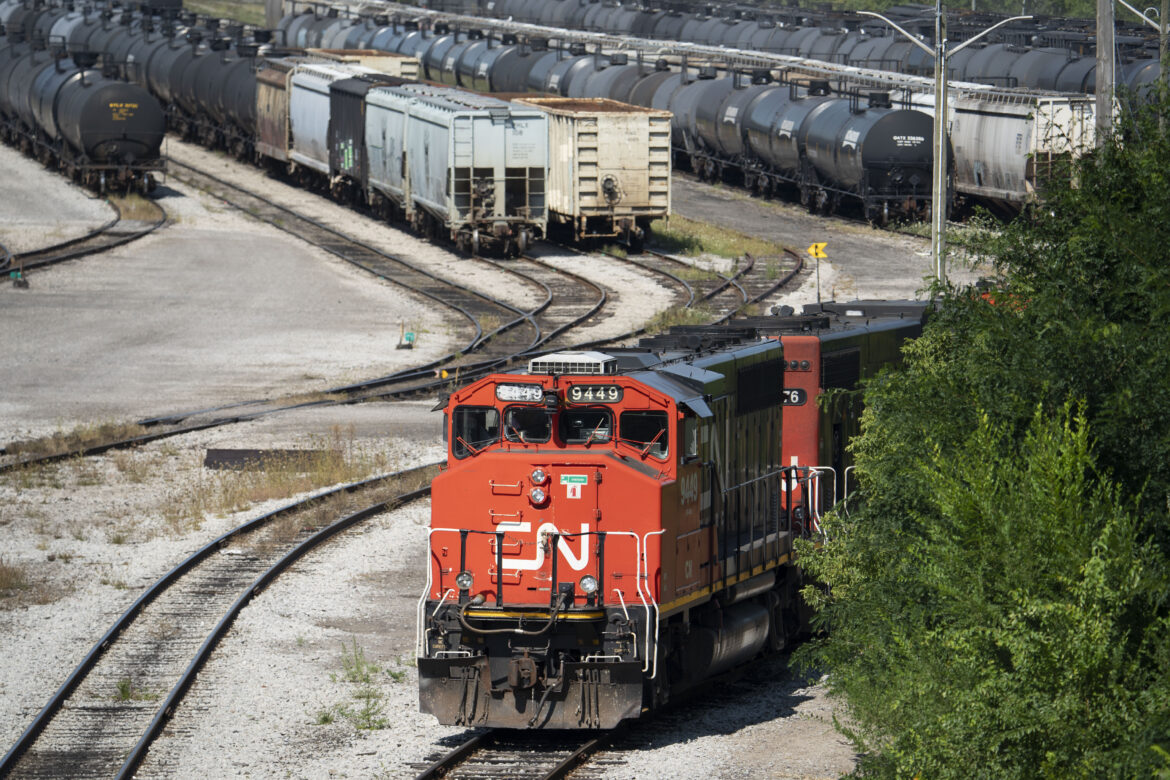579

A CN locomotive sits idle at the CN Stuart Yard west of the West Harbour GO station in Hamilton, Ont., Thursday, Aug. 22, 2024. THE CANADIAN PRESS/Peter Power




